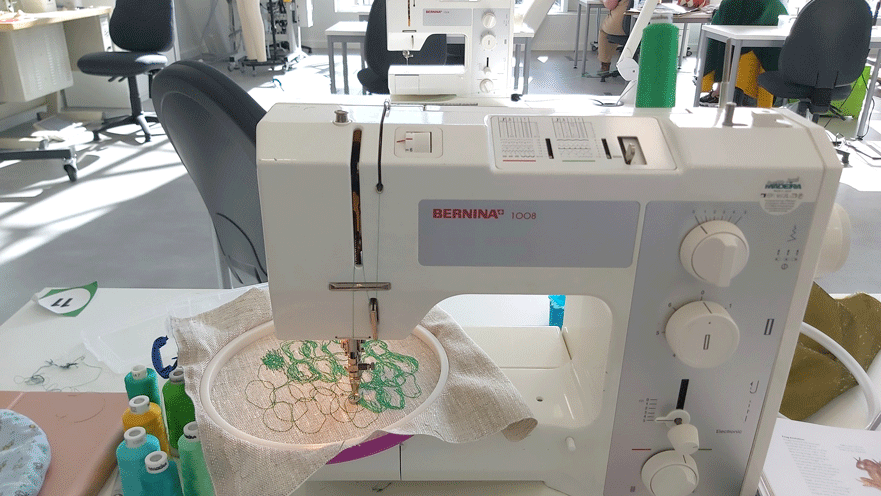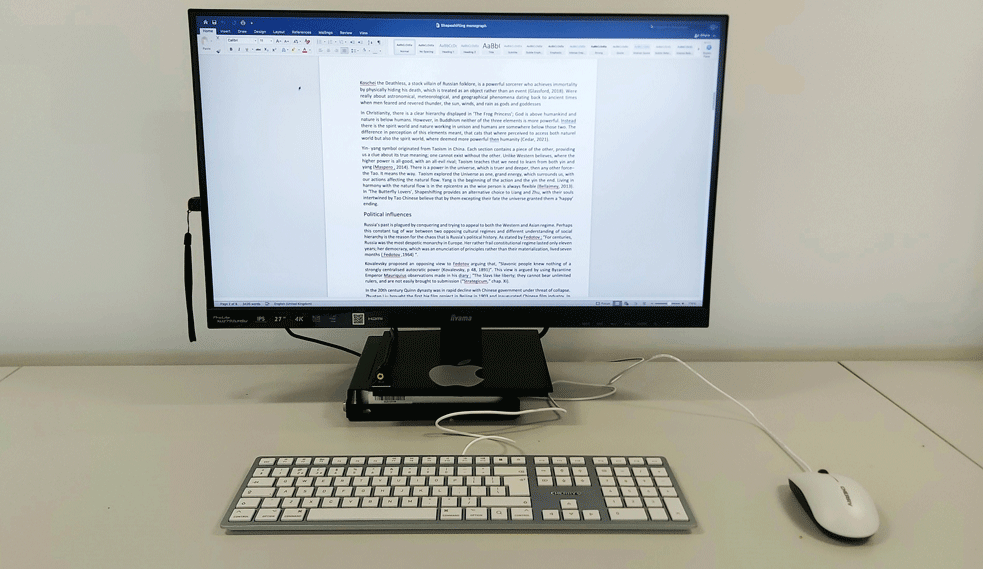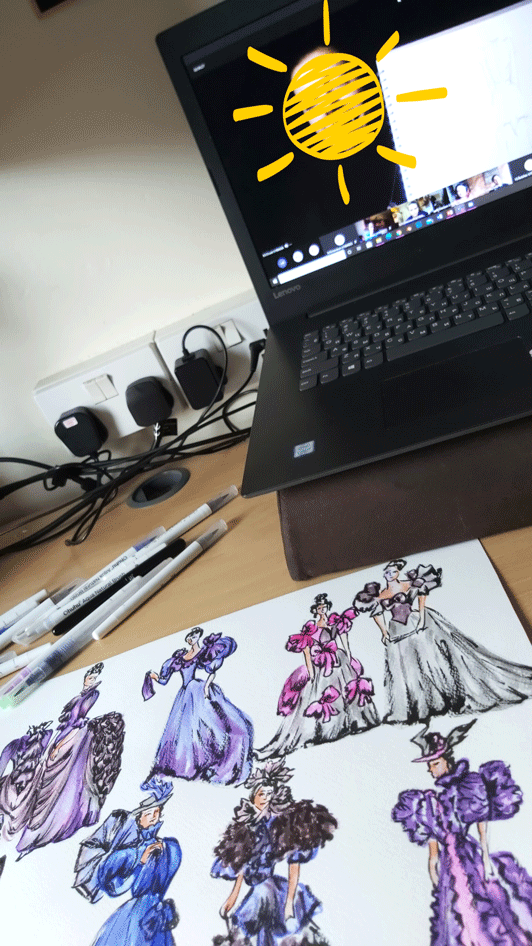
Staying organised at university

Anna Rybyakova
Costume with Textiles BA(Hons) - Third Year
Hello, my name is Anna and I'm a final year Costume with Textiles student. Throughout university, I've been involved in many societies such as; Climbing, Archery and the Disney society.
Hey everyone, my name is Anna! I'm currently a Costume with Textiles BA (Hons) student at the University of Huddersfield. Here are my tips on staying organised at university...
Time management strategies
Personally, I've found that the key seven things to effective time management are:
• To establish and review your priorities
• Break down large tasks into achievable smaller actions
• Give yourself a small treat to complete particularly hard tasks
• Reduce procrastination by taking regular breaks
• Limit distractions
• Focus your thoughts
• Be realistic and honest when estimating how long it will take you to complete tasks

Efficiency or effectiveness?
The largest mistake I made in my first year was thinking that efficiency and effectiveness are the same thing; when in fact, they are very different.
If you work hard and are well organised but spend all your time on unimportant tasks, you are efficient but not effective, as the most important things are still not being done. To be effective, I found you need to decide what tasks are urgent and important (like the first paper due) and focus on these. Having a clear list of priorities can help you with that.
Systematic time planning habits using the SMART technique
I tried a plethora of methods to stay organised but found the SMART technique the most efficient. SMART is an acronym meaning: Specific, Measurable, Achievable, Realistic and Time-bound (SMART).
How the SMART technique works
I always start by planning each week in advance so that all tasks from my module lists and my personal tasks can be completed. It's very important to factor in other commitments and necessities outside your studies. Without regular breaks, the pressure of studies can lead to burnout.
Each night, using your weekly list, create a list for the day ahead. As new tasks emerge, add them to your lists. Cross off what has been completed so you can see the progress made. Make sure that tasks are Specific, Measurable, Achievable, Realistic and Time-bound (SMART).

The ABC Method
Another time management method that I find helpful is the ABC method. It's similar to SMART but there are some things, which I think don't work as well. The ABC method ensures that the most important tasks are always done first but most of the time you do not complete the other tasks. I found it quite hard to keep a balanced lifestyle with this method but a few of my housemates stand by it. We are all different so do not be afraid to try different methods of time management.
The ABC Method in a nutshell:
A = A must-do priority task, contributing positive forward progress on completion of the task, or serious negative consequences for non-completion.
B = A task you should do but which has fewer positive or negative consequences at this time. No B category tasks should be worked on when an ‘A category’ task is still to be done.
C = A task you’d like to work on but it can wait, it's not necessary or urgent at this time.
D = A task you could delegate.
E = A task you could eliminate altogether.

The Pomodoro technique
The name might sound hilariously stupid but do not dismiss it. It utilises the idea of combining the SMART technique with a timer. This way you can have regular breaks.
Start by deciding on the task according to the SMART technique (specific, measurable, achievable, realistic, and time-bound). After deciding on the task set a timer for twenty-five minutes and work on that task for that whole period.
When the timer tells you that the twenty-five minutes are up, take a short five-minute break. Repeat until you complete your task.
Working on a project/assignment may seem draining but with this technique, you can have regular breaks, which improves the quality of your work. I also found that just like in video games, by setting a timer you work faster.
Other support with managing your time
• If you're struggling with your workload so much that you simply cannot see even where to start, then there are places and people you can go to and ask for help.
• Try to discuss your work for your modules with your tutors. It will need review and amendment, so act on their feedback and factor it into your weekly planning.
• The university subscribes to LinkedIn Learning (available on Brightspace) which has a range of training films on time/project management. There are so many other time management techniques, which you might find amazing for you.
• YouTube has a massive number of videos on time management, which I found very useful myself.
• The Library has a range of texts on time management if you want to read further on these principles and techniques.
• If you are struggling to manage your time across modules please speak to the module tutors or even the head of the course.
• Use the Wellbeing Services; there's confidential one-to-one and group support for a wide range of personal and emotional concerns. You can find full details of what they offer on the Wellbeing and Disability Services webpages.
• Time with Academic Skills Tutors is very helpful and can be booked by contacting an Academic Skills Tutor in your school - this will be tailored to you and your course. You can discuss your current work, and they will help with referencing and academic writing.
• If you have dyslexia or other learning difficulties, contact Disability Services. It provides confidential advice and guidance, with a focus on you and the support you need. You can find full details of what they offer on the Disability Services webpages.
I hope my advice has been useful. Remember, we're all different so don't be afraid to take the time to try different methods to find the best one for you!
Find out more about the university and our courses by chatting to our students via Unibuddy here.
More student life articles?
What is life like as a student? Hear it straight from our current students as they write about their student experience.
Meet our reps
These are the students who are sharing what life is really like at the University of Huddersfield.